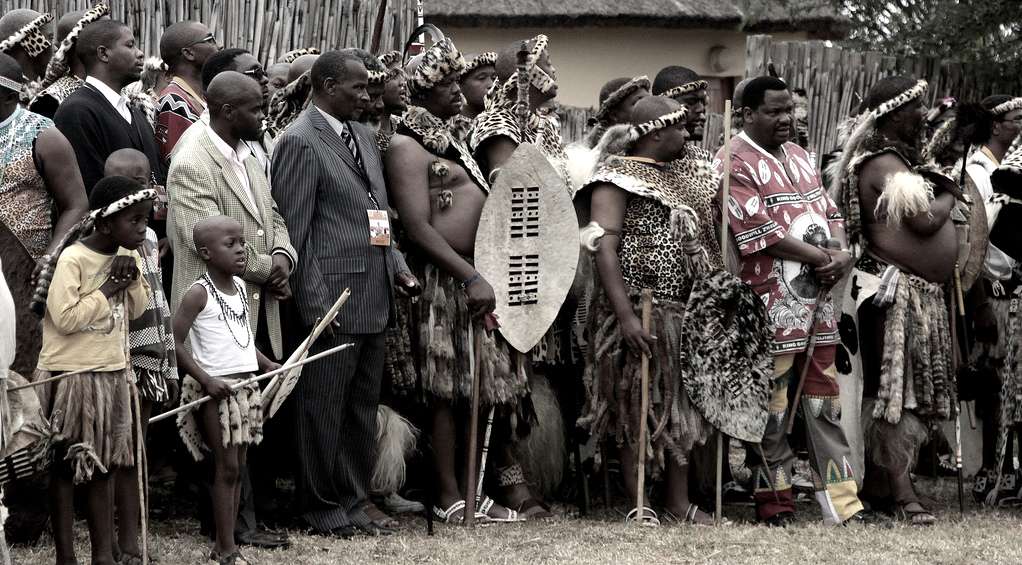How many African Tribes do you know?
There are probably a thousand and one things that make Africa unique. There’s to the African identity. The drumbeats moving in resonance with the steps of the dancers concludes with a thump on the ground- a tribute to mother earth. The earth in turn absorbs the energy to return the favor by a favorable yield of crops. Africa’s relationship by every means, with mother earth, is give and take. Now you may have heard about manybAfrican tribes, but here are a few African tribes you probably have never heard about.
Table of Contents
7 African Tribes you probably did not know about
1: The Himba tribe:
The Himba tribe are a group of African livestock farmers in Northern Namibia, who breed fat-tailed sheep and goats, but the actual wealth of these people is measured in the number of cattle each tribesman possesses. Livestock are the primary source of food (mainly meat and milk) for the Himba people.
They primarily consume their produce and on rare occasions sell their livestock for cash. With the Himba people, women and girls are actually required to perform more laborious work than men and boys. The major tasks men are required to perform is tending to the livestock farming.
Due to the hot climate of the area, the tribe’s clothing is primarily made from calf and sheep skins, with the exception of a few modern textile wears. The Himba men are vastly polygamous and the people are monotheistic in religion, with the worship of the god mukuru.
2: The Suma tribe.
Southwestern Ethiopia, you will find the Suma tribe. This tribe in a sense is a conglomeration of three tribes- chai, timaga and baale. They are a people invested in agriculture, but they have been overtime, fraught with several inter tribal conflicts.
The Suma tribe are a culturally aware people who have maintained some cultural practices over the years. The young girls, at a young age, have to prepare themselves for marriage by piercing their bottom lips, stretching it and inserting a little clay lip plate. This practice is however becoming a little extinct.
3: The Swazi tribe:
The Swazi are a major South African tribe. The people and the Kingdom of Eswatini today are actually named after their first ruler, Mswati II, who became king in 1839 after the death of his father King Sobhuza who strategically defeated the British who occupied Eswatini. The people have certain cultural practices and trends which include dancing and singing(including praise- singing). The Swazi people are also invested in Pottery and carving, things they regard as minor arts.
4: The Hadzabe tribe.
The Hadzabe tribe is an indigenous tribe in North central Tanzania. The tribe is genetically unrelated to any other tribe. They have an established cultural system like any other tribe, but this is becoming increasingly threatened by an increased tourist activity around the area. The Hadzabe is a language faced seriously with the threat of extinction due to the limited usage as it is spoken primarily at home by the people.
5: The Bayaka tribe.
Southwestern CAR is the Bayaka tribe.
The Bayaka tribe or Aka, as it can be alternatively called, is a traditional hunter-gatherer society, the bayaka have a varied diet that includes a large number of plants, different species of game and a good number of insect species, in addition to nuts, fruit, honey, mushrooms and roots. Some of the bayaka people have recently taken up the practice of planting their own small seasonal crops, but agricultural produce is more commonly obtained by trading with neighboring villages.
6:The Dogon tribe.
In central Mali, live the Dogon tribe. They are mainly people interested in agriculture. Their craftsmen, who are mostly metalworkers and leatherworkers, form separate castes. The Dogon people actually have no centralized system of government but they live in villages composed of patrilineages and extended families. For every household, the head of the family is the senior male descendant of the common ancestor. The Dogon people practice Polygyny, but at a very minute rate.
7: The Igala:
The Igala people of middlebelt Nigeria are predominantly found in Kogi state, Nigeria. The first ever political leader of the tribe was a woman- Ebule-Jonu. She assumed the title of ‘Attah’ and this has been passed down through ancestry. The Igala tribe is one of the major tribes in Nigeria. The tribe possesses a rich history partly due to the cause of Inikpi, a legendary Igala princess who sacrificed her life to save her people.

